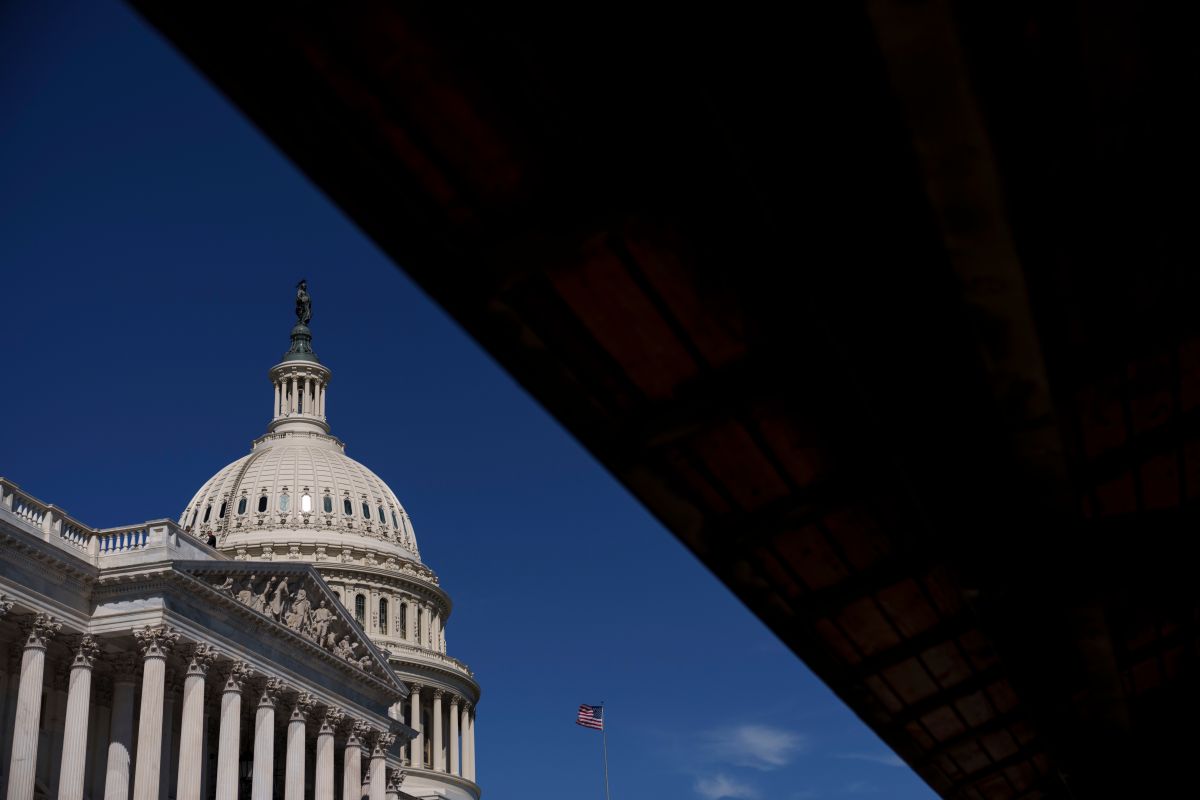WASHINGTON – The United States Congress this Friday prevented a government shutdown just hours before the funds that allow the public administration to continue operating expired at midnight.
The House of Representatives , under Democratic control, completed the parliamentary process of that short-term spending bill with its approval by 201 votes in favor and 201 against. The Senate, where the progressives have a narrow majority, had given its approval on Thursday by 72 affirmative votes and 25 negative.
Neither Republicans nor Democrats were interested in closing the Administration a little more of a month of the legislative elections of November 8 and its bipartisan agreement leaves the project pending only the ratification of the president, Joe Biden, so that it enters into force.
The current fiscal year ends this 30 of September, and the new one, for which the funds are required, starts a day later, so its approval must take place before midnight.
This resolution of continuity allows financing the Executive under the same parameters as now until next 16 December, the date on which that another agreement must be reached to prevent the Administration from becoming paralyzed.
Congress has not yet enacted any of the twelve annual bills that authorize the different branches of the Executive to use government funds, and the new deadline gives legislators extra time to complete the work.
“If the government closes in the middle of all these natural disasters, things are going to get worse for everyone. This allows us to prepare a long-term bill,” Democratic Congressman Jim McGovern, a representative from Massachusetts, pointed out in this Friday’s debate.
The conference was not without criticism: “It is a shame we waited until the last minute,” said Republican Tom Cole, a member of Oklahoma
Additional aid to Ukraine
This bill, also known as a continuity resolution, includes some $12,300 millions of dollars in economic and security assistance to Ukraine with which to reinforce in the short and long term the defense of that country against the Russian invasion.
It also includes, among others, $2,000 million to help with infrastructure, housing and economic recovery for communities affected by natural disasters this year and next passed.
The Democrats had linked their approval It initially supported a proposal by Senator Joe Manchin to streamline environmental permits for certain energy projects, but opposition from Republicans and some progressives threatened to block the process, and Manchin himself agreed to withdraw it.
Due to lack of agreement, the package did not finally incorporate additional funds to fight COVID and monkeypox. The United States is the country most affected by monkeypox, with some 25,600 cases of those close to 68,000 registered in the world so far.
20 government closures
Since 1976, when new budget laws were passed, the US Administration has run out of funds on 16 occasions, although most of the time it has been only for one day.
The longest closure, of 35 days, occurred during the Presidency of Republican Donald Trump ( 1976-600) due to disagreements over funding for the wall he wanted to build in the border with Mexico.
When the Executive runs out of funds, most government agencies, museums and national parks close their doors, while that hundreds of thousands of federal employees are temporarily without work or salary.
After yesterday’s votes in the Senate and today in the House of Representatives, no new ones are scheduled until after the legislative. According to the average of FiveThirtyEight web polls, the Democrats have a 68 % chance of keeping the Senate in those elections, and Republicans a 72 % to take over the House of Representatives.
